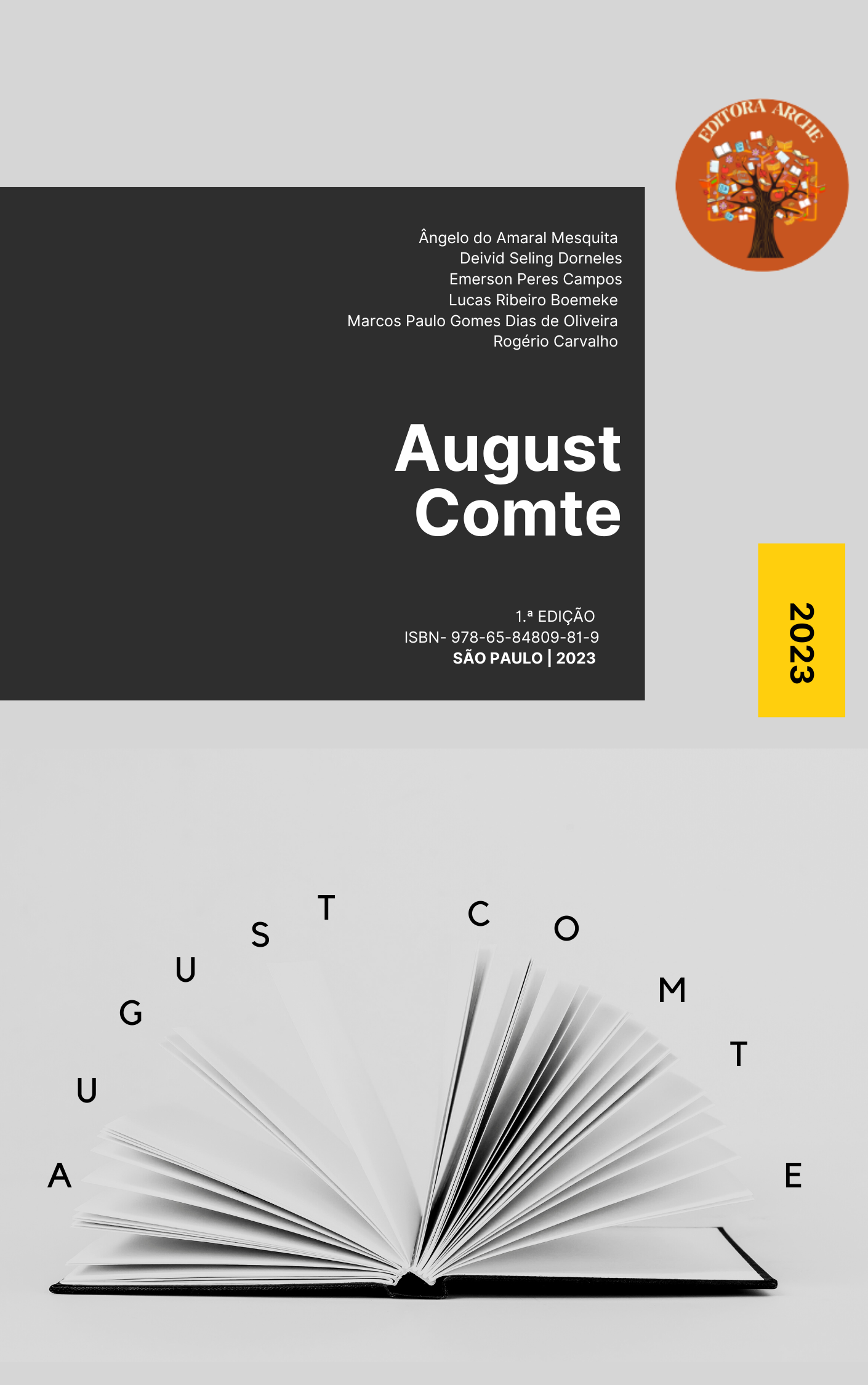AUGUST COMTE
Keywords:
Scientific knowledge. Society. Sociology. Positivist Theory.Abstract
The book "August Comte" is a work that addresses the life and work of the French philosopher, Auguste Comte (1798-1857). Comte is considered one of the main thinkers of the 19th century and founder of positivism, a philosophical current that seeks the application of the scientific method in all areas of human knowledge.
Initially, a brief biographical incursion on Auguste Comte (1798-1857) is a French philosopher, considered the founder of positivism, a philosophical current that proposes that only facts that are observable and verifiable by experience are worthy of study. He was born in Montpellier, in the south of France, into a bourgeois family.
Comte studied at the École Polytechnic in Paris, where he became interested in mathematics and the natural sciences. He worked as a tutor for a while before turning to philosophy and beginning to develop his ideas on positivism.
In 1826, Comte met Saint-Simon, another French philosopher, who influenced his ideas about society. Comte worked as Saint-Simon's assistant for a time, but the two separated in 1828 over philosophical differences.
Comte published his most important work, "Course of Positive Philosophy", in six volumes, between 1830 and 1842. In that book, he argues that knowledge must be based on empirical facts, not on metaphysical or theological speculations. He also developed the idea that human history has passed through three stages: the theological, the metaphysical and the positive.
Comte was a critic of religion and argued that science should replace it as the main source of authority in society. He also proposed the idea that society should be organized around science, with scientists and experts in various fields making policy decisions.
Comte founded the discipline of sociology and coined the term "altruism", which means love for others. He also developed the idea that philosophy should be a practical discipline that helps people deal with real problems.
Towards the end of his life, Comte became an advocate of the "Cult of Humanity", a secular religion that he believed would replace traditional religions. He died in Paris in 1857.
Despite some criticisms and limitations of his ideas, Comte had a significant impact on philosophy and the social sciences. His ideas influenced thinkers such as Emile Durkheim, John Stuart Mill and Herbert Spencer, and his contributions to sociology are still studied and debated today.
In possession of the biographical preamble, it is worth enumerating the chapters of the book, "August Comte". The first chapter deals with the Historical Context in which Auguste Comte developed his ideas, it is important to emphasize that the 19th century was a period of intense political, social and economic transformations in Europe. At that time, the Industrial Revolution was in full swing, which caused profound changes in the way people worked and lived. In addition, the French Revolution (1789-1799) had shaken the political and social structures of the Old Regime, generating a climate of instability and uncertainty regarding the future.
The following chapter, called “The beginning of studies”, presents Comte's first investigative incursions. The philosopher began his studies in mathematics and physics at the Polytechnic School of Paris, where he met important personalities such as Henri de Saint-Simon and Charles Fourier, who influenced his ideas on the organization of society and the role of science in solving human problems.
The third chapter, “The Positivism of August Comte”. In it, the founder of positivism, a philosophical current that defends the application of the scientific method in all areas of human knowledge. For him, science was the only way to reach true knowledge, therefore, it should be the foundation of social organization. Comte proposed the creation of a new science, sociology, which would study the laws that govern society and guide political action.
The later chapter, “Religious positivism”, Comte also proposed the creation of a positivist religion, which would aim to replace traditional religions, considered by the philosopher as primitive forms of knowledge. Positivist religion would be based on the worship of Humanity and the celebration of great men who contributed to the progress of humanity. This idea generated controversy and was heavily criticized by many thinkers at the time.
The last chapter of the aforementioned book, Positivism in Brazil”
.Positivism had a great influence in Brazil in the late 19th and early 20th centuries. The Brazilian philosopher, Miguel Reale, was one of the main representatives of positivism in the country. In addition, positivist philosophy had a great influence on the creation of the Brazilian Republic in 1889 and on its first Constitution.
In summary, the book "August Comte" presents in a clear and objective way the life and work of this important French philosopher. Comte was a visionary thinker who left an important legacy for the history of western thought, especially with regard to the appreciation of science and the application of the scientific method in all areas of human knowledge, highlighting his contributions to the development of positivism and sociology.
Downloads

Downloads
Published
How to Cite
License
Atribuição CC BY
